In early September 2023, the Dutch government announced that it’s moving forward with a new “green” flight cap, to be implemented in 2024. Amsterdam Schiphol Airport has today outlined what this will look like, and it involves fewer total takeoffs and landings, restrictions on private jets, and the banning of certain aircraft types. Let’s go over the details, and talk about what this means for airlines and travelers.
In this post:
New restrictions at Amsterdam Schiphol Airport as of 2024
Amsterdam Schiphol Airport has revealed the major changes that we can expect as of the summer 2024 season, which kicks in as of March 31, 2024. We’re going to see a new flight cap, a roughly 40% reduction in private jet flights, and 87 aircraft types being banned from the airport. For now this is being described as an “experimental scheme,” so I guess we’ll see how this evolves.
Schiphol Airport restricted to 460,000 flights per year
The Dutch government has decided that Amsterdam Schiphol Airport should be restricted to a total of 460,000 flights in a full year. As a result, for the summer 2024 season (from March 31 until October 26, 2024), a total of 280,645 flights will be allowed at the airport.
Just for context, currently Schiphol Airport can accommodate up to 500,000 flights per year. The previous plan was that this number could grow to 540,000 flights per year in the future, but that has now been reduced to 460,000 flights per year.
That represents a roughly 9% cut to the current capacity, and a 17% cut to the future anticipated capacity. With this new cap in place, you can expect that airlines will have to start adjusting their schedules to reflect this change.
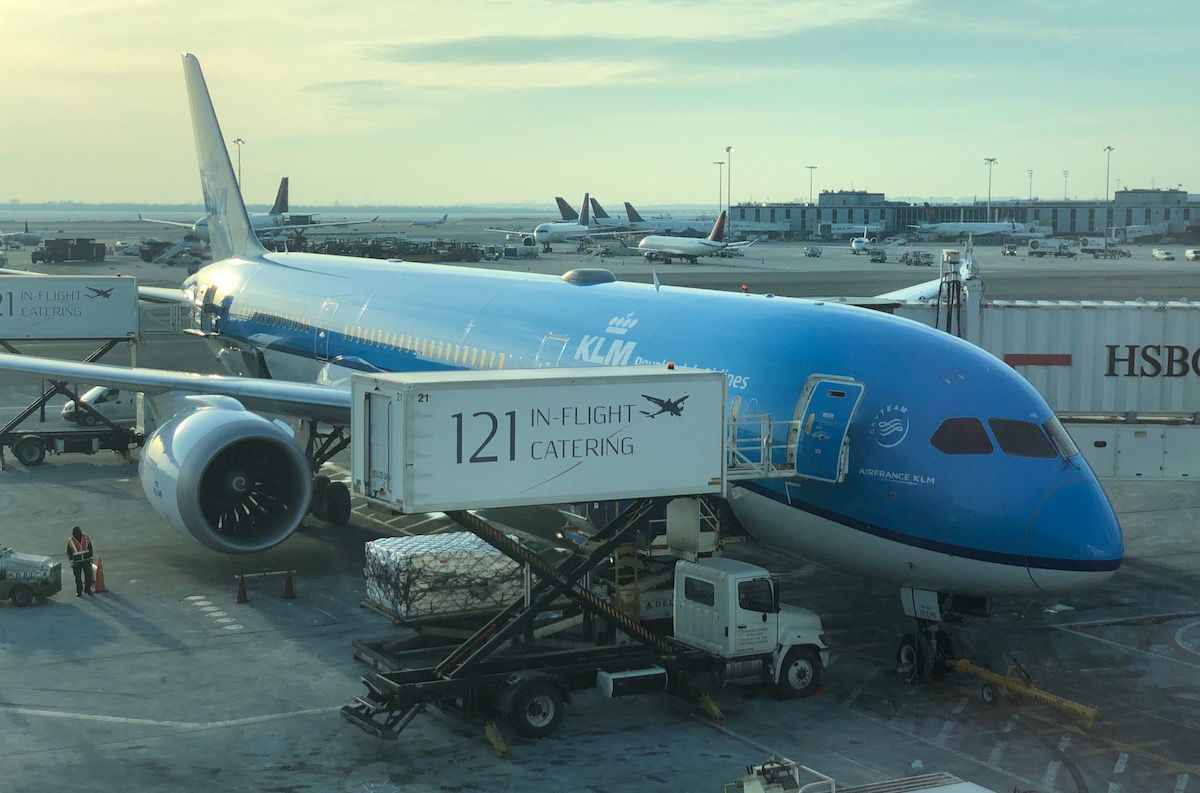
Schiphol Airport restricting private jet flights
Amsterdam Schiphol Airport will restrict the proportion of flights made up of “small business traffic,” which includes private jets. These movements will be decreased by about 40%. The new maximum for the entire operating year is 12,000 flights, with just over 7,200 flights being allowed during the summer season.
For what it’s worth, in 2023 that limit was 17,000 flights, so that’s quite a reduction. This is part of the airport’s plan to eventually completely ban private jets. Schiphol also eventually plans to introduce a curfew.
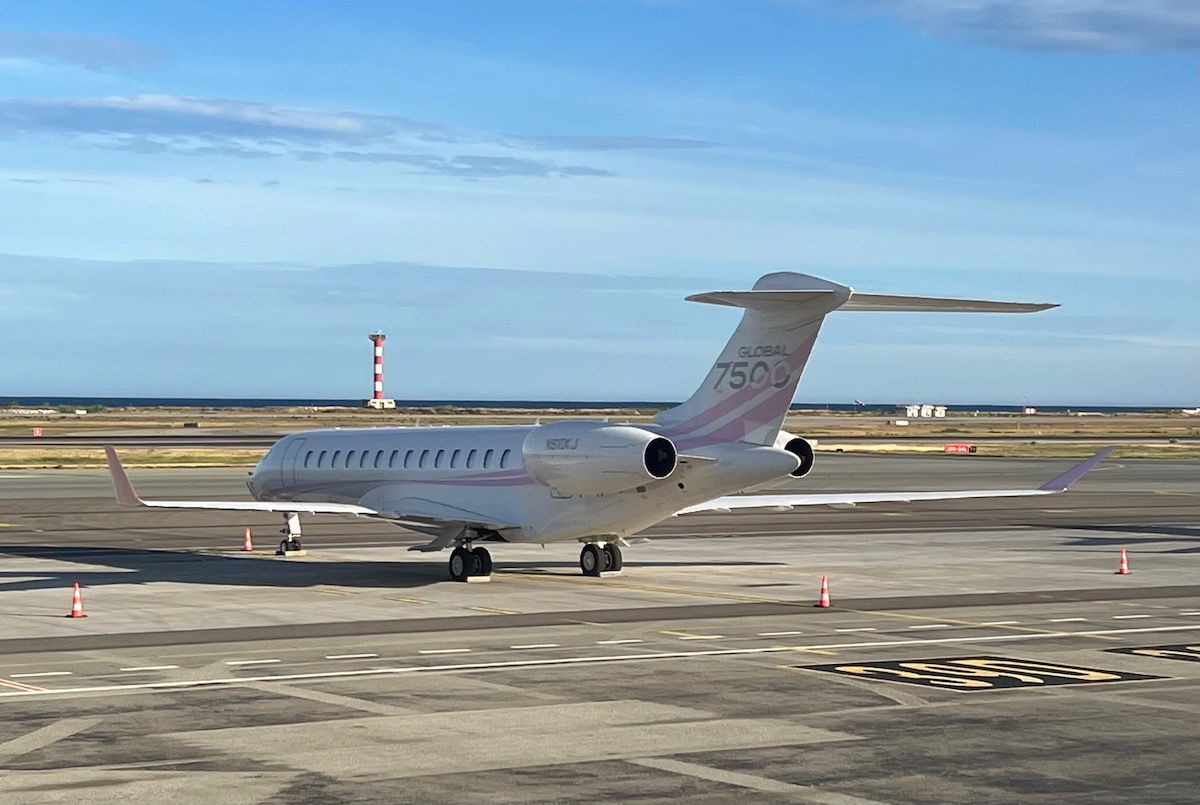
Schiphol Airport banning 87 noisy aircraft types
To reduce noise for people around the airport, we can expect a new ban on 87 aircraft that will no longer be allowed at Schiphol as of the summer 2024 season. These types of planes are already no longer flying to the airport, so the practical implications here are limited.
The airport will also encourage the use of quieter aircraft by way of airport charges. Airlines need to pay up to five times more when flying the noisiest and most polluting planes compared to flying the quietest and cleanest aircraft. That’s a smart policy, in my opinion.
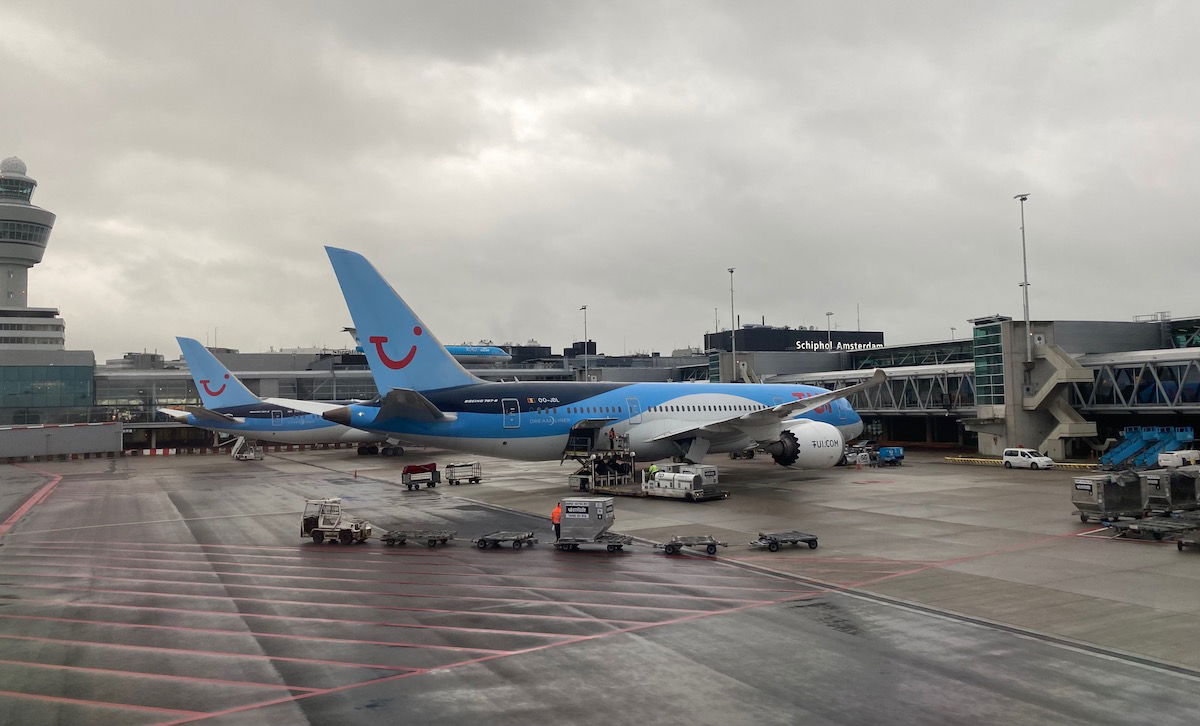
This has major implications for airlines & passengers
While I can appreciate the desire to reduce emissions, I feel like this solution won’t actually accomplish a whole lot. Whether the Dutch government likes it or not, the global demand for air travel is continuing to grow over time:
- A lower flight cap will simply allow fewer nonstop links between Amsterdam and destinations around the globe, which isn’t good for the Dutch economy
- This will not only hurt airlines, but it will also translate to higher fares for consumers over time
- If the goal is to reduce emissions, how about instead restricting the types of planes flying to the airport? This cap will reduce flights by 9-17%, while new generation aircraft often have 20% reductions in emissions, which would have an even bigger impact
- Speaking of emissions, how about just adding some sort of a carbon offset tax with each ticket, used to fund projects that can have a positive impact on the environment?
- Climate change and environmental initiatives can’t really be viewed in isolation; this will simply cause traffic to be redirected through other airport hubs in the region
- What I don’t understand is if you’re going to force airlines to reduce commercial flights on environmental grounds, why not immediately fully ban private jets, which are much worse for the environment on a per-person emissions basis?
Only time will tell how this plays out. For now this is being billed as an experimental scheme, so I guess we’ll see how airlines and consumers adjust.
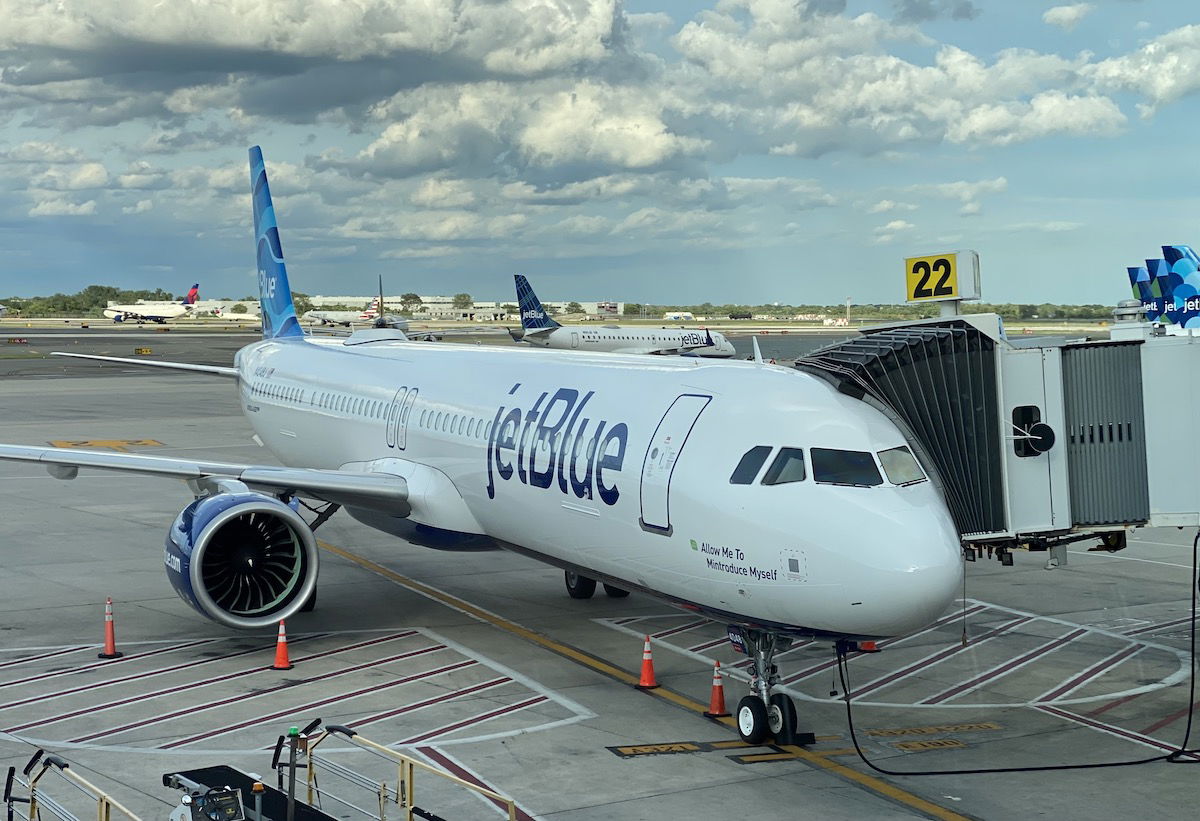
Bottom line
The Dutch government has been working to make Amsterdam Schiphol Airport smaller, and we now have a concrete sense of what that will look like. Starting in the summer of 2024, the total number of flights will be reduced by 9%, the cap on private jet flights will be reduced by 40%, and the noisiest aircarft will be banned (though they already don’t fly to the airport).
I’m curious to see how airlines go about reducing their schedules at the airport.
What do you make of this new Dutch flight cap?


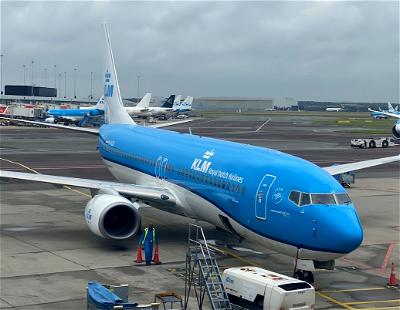
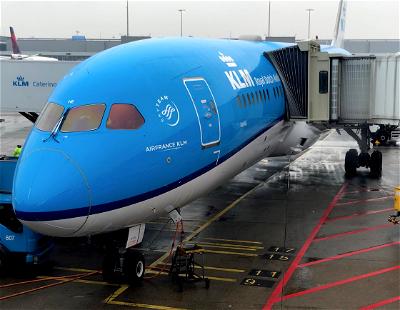
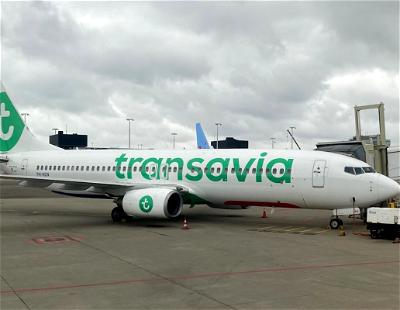
Just Dumb and short sighted. Does nothing for the environment as a whole, but just damages the economy. It also restricts cashflow to main operator KLM, which reduces their ability to buy new planes which is probably enough to offset most of the 'savings'. Destroying a beautiful airline like KLM does nothing positive for the environment. Am all about saving the planet, but there are much smarter ways to do this. Implement SAF for example,...
Just Dumb and short sighted. Does nothing for the environment as a whole, but just damages the economy. It also restricts cashflow to main operator KLM, which reduces their ability to buy new planes which is probably enough to offset most of the 'savings'. Destroying a beautiful airline like KLM does nothing positive for the environment. Am all about saving the planet, but there are much smarter ways to do this. Implement SAF for example, or carbon offset programs, type restrictions to new planes, complete ban on private jest (as mentioned in article) and so on.
Will cause people to fly other airlines and fly to/through other places. Could bankrupt KLM as a result. Let's see.
I live in neighbouring Belgium and we already felt the effect of the cut-backs at Schipol. The car-parks at Brussels Airport (which is about 3 hours drive away from Schipol) are complete jammed with Dutch cars during vacation times. As you say, people don't fly less, they just change to another airport. And add a bit of extra emissions by having to go there first.
Do the flight restrictions affect Rotterdam? The train connection doesn't look great to AMS Central, but might be an option for dense O/D regional flights.
As for private aviation, there are 23 other airports in the Netherlands (though admittedly I don't know the runway capability of each), so why not just move all of that traffic to other airports?
Finally, perhaps, given that AF-KL are one airline group they can coordinate a network schedule to...
Do the flight restrictions affect Rotterdam? The train connection doesn't look great to AMS Central, but might be an option for dense O/D regional flights.
As for private aviation, there are 23 other airports in the Netherlands (though admittedly I don't know the runway capability of each), so why not just move all of that traffic to other airports?
Finally, perhaps, given that AF-KL are one airline group they can coordinate a network schedule to offset any traffic that might be otherwise lost over AMS.
I'm sure Delta is very concerned considering the # of DL flights in & out of AMS as well as the strong code share with KLM. The answer maybe larger wide body jets.
However, for many smaller Euro carriers and JetBlue, wide bodies are not an option. These are the airlines that will take the blunt of the scaling back of capacity.
How many flights are actually being operated at present? That’s a key detail that’s missing if trying to assess actual impacts. I’ve read in some places that current activity is under the new cap, but don’t know where to verify.
AMS does a nice job releasing data. It's all here in the file titled "Monthly Traffic Data 1992 - Present"
https://www.schiphol.nl/en/schiphol-group/page/transport-and-traffic-statistics/
You would need to play around in excel to get exact numbers, but calendar year 2022 movements are at 397K and rolling 12 month movements (Sep 1 2022 - Aug 31, 2023) are at 423K.
KLM should go on a A380 shopping tour!
Amsterdam has been taken over by idiots.
Pointless changes that are just pandering to climate waaaa but that actually makes no difference.
Amsterdam has no control over this. This is from the national government.
I think this is good news. It means next summer won't be so hot, right?
I promise you no one will remember the flight caps once the delusional decision to buy up and close huge swaths of Dutch livestock production kicks in, and people can't afford to feed themselves. The entire net-zero movement is crumbling (see the UK and Germany) but the damage is done.
KLM to buy used A380?
Gun meet foot. What an absolutely myopic decision.
You feign some concern for the Dutch economy and then say that a better solution would be mandating only the newest jets can fly to AMS. This would be a death knell for KLM, while other airlines could easily just use their modern jets for their AMS routes.
This is all a trial and the limits are not an actual real cut, just a limit to growth.
The government recognises that real changes...
You feign some concern for the Dutch economy and then say that a better solution would be mandating only the newest jets can fly to AMS. This would be a death knell for KLM, while other airlines could easily just use their modern jets for their AMS routes.
This is all a trial and the limits are not an actual real cut, just a limit to growth.
The government recognises that real changes will need to be made in order to address emissions and limiting aviation growth is one way to do that. Creating a greener world will be unpleasant and expensive. But the longer we wait, the more unpleasant and expensive it will become.
Unpleasant and expensive would be one thing if there was a valid reason for it. Unpleasant and expensive for hysteria is a lose-lose.
Lufthansa Group and IAG to Dutch voters: Thank you!
Exactly! But I think both will be not happy when AF-KLM shows up in force at the bidding for TAP Portugal. Both IAG (especially) and LH (after ITA is finished) we're considering gobbling up TAP at the upcoming Govt auction. Now I think AF-KLM (who have also expressed interest) will REALLY need to buy then for future growth and stability. Plus, is locks down a SouthWestern Europe Hub and strong LaTam growth, especially in Brazil.
Future growth will not be in LIS. The airport is already stuffed to the gills and the government has been looking for a place to build a second airport, but has come up short. The existing LIS operation of TAP would be a great addition to AF/KL.
The primary rationale for reducing flights is to reduce tourists. This Summer it was almost impossible to walk down the Damrak, the primary sidewalk downtown, for much of the evening, it was almost like a NY Eve there. Amsterdam has often complained about 'hooligan' visitors who come to drink, smoke and brawl. And, to discourage them, is perpetually considering 'moving' the Red Light District and limiting Coffee Shop access to Dutch Citizens. Like Barcelona, it's...
The primary rationale for reducing flights is to reduce tourists. This Summer it was almost impossible to walk down the Damrak, the primary sidewalk downtown, for much of the evening, it was almost like a NY Eve there. Amsterdam has often complained about 'hooligan' visitors who come to drink, smoke and brawl. And, to discourage them, is perpetually considering 'moving' the Red Light District and limiting Coffee Shop access to Dutch Citizens. Like Barcelona, it's reached the limits on visitors it can accept. Thus far, no proposal to move excess visitors to Blackpool, where the "Illuminations" already up to enjoy.
If that were the case, the logical thing would have been to address the problem rather than strangle AMS. Highly tax those passengers who leave the terminal. Highly tax hotel rooms, Airbnb bookings, and other tourist-oriented products and services. Stop talking about leaning on attractive nuisance services such as those you name, and start doing it.
Given that they are not doing those things, it is logical to take the Netherlands' government at their word:...
If that were the case, the logical thing would have been to address the problem rather than strangle AMS. Highly tax those passengers who leave the terminal. Highly tax hotel rooms, Airbnb bookings, and other tourist-oriented products and services. Stop talking about leaning on attractive nuisance services such as those you name, and start doing it.
Given that they are not doing those things, it is logical to take the Netherlands' government at their word: this is about strangling AMS.
Open prostitution. Drugs for sale. Cheap beer. And people wonder why this city is a magnet for the misfits and anti-socials? Also, I don't hear Dutch governmental authorities complain about raking in those eye-watering revenues (google it) in the form of taxes, fees and charges from these legalized vices. The usual Dutch hypocrisy on display for all the world to see (if you would go past the headlines and dig just a little bit deeper).
Politics are alive and well everywhere including Netherlands! Willem Engel and Chuck Holton interview on Agenda 2030.
Ben your conclusions are forgone. "Airlines need to pay up to five times more when flying the noisiest and most polluting planes compared to flying the quietest and cleanest aircraft. That’s a smart policy, in my opinion." "A lower flight cap will simply allow fewer nonstop links between Amsterdam and destinations around the globe, which isn’t good for the Dutch economy". So you are good with driving costs up in the name of the environment...
Ben your conclusions are forgone. "Airlines need to pay up to five times more when flying the noisiest and most polluting planes compared to flying the quietest and cleanest aircraft. That’s a smart policy, in my opinion." "A lower flight cap will simply allow fewer nonstop links between Amsterdam and destinations around the globe, which isn’t good for the Dutch economy". So you are good with driving costs up in the name of the environment and also are sure this flight cap policy is not good for the Dutch economy.
Let the scenario play out in 2024 then reassess. I think sounding the death knell for Schipol, Amsterdam, the Dutch economy and global airlines is premature. People who fly private always have an alternative airport. Guessing their is one not far from Schipol.
All of this is stupid and short-sighted pandering. Any European airport looking to be a more major hub (For example: Madrid, Istanbul, Berlin, Frankfurt, Munich, Stockholm, Helsinki, Riga, Copenhagen, etc.) Will gladly lap up the capacity and passengers and BUSINESS. In theory this would also harm AF/KLM, but I think the Government will find a way to protect them and harm low cost airlines and new to market airlines more. AF/KLM will have to overpay...
All of this is stupid and short-sighted pandering. Any European airport looking to be a more major hub (For example: Madrid, Istanbul, Berlin, Frankfurt, Munich, Stockholm, Helsinki, Riga, Copenhagen, etc.) Will gladly lap up the capacity and passengers and BUSINESS. In theory this would also harm AF/KLM, but I think the Government will find a way to protect them and harm low cost airlines and new to market airlines more. AF/KLM will have to overpay for TAP now since they'll need the growth to come from somewhere else. Bidding war with IAG and others to come?
Just increase landing fees dramatically, and it will happen naturally. Airlines will upgage aircraft, and private jets will willingly go to nearby airports, unless of course it's for someone Uber wealthy willing to pay outrageous fees, or of course if it's corrupt EU politicians on their way to a climate conference.
I wonder if DL will drop any AMS flights as a result of this.
Delta is asking Tom Brady what to do right now.
I mean, these sort of things are generally written to favor the incumbent airline, so I wouldn't expect a regulation that might directly reduce emissions while inconveniencing KLM (like banning older, inefficient aircraft). I will point out that some sort of offset tax is not a good idea either, as most of these carbon offset projects are completely bogus and have, at best, zero environmental impact.
Regarding private jets, completely banning them all in one stroke seems heavy handed and would likely face much more backlash. A 40% reduction is a good start IMO.
For carbon offset taxes, my understanding is that generally the money is rarely used for the advertised purpose. There's not much oversight or accountability in that regard, and allowing people to just pay an extra tax to offset carbon in essence is just a minor additional...
Regarding private jets, completely banning them all in one stroke seems heavy handed and would likely face much more backlash. A 40% reduction is a good start IMO.
For carbon offset taxes, my understanding is that generally the money is rarely used for the advertised purpose. There's not much oversight or accountability in that regard, and allowing people to just pay an extra tax to offset carbon in essence is just a minor additional cost to doing business and doesn't actually cause them to reduce their emissions. In that sense, setting the example by capping flights and forcing a reduction in private jet traffic is the more effective way to make real emissions reductions.
I also feel like the connectivity angle is overblown, as the obvious solution (since the government is banning/restricting aircraft types) is to reduce frequencies and substitute the remaining with larger aircraft. Which honestly should be global airline practice, but without government-enforced restrictions airlines would never do it on their own except in the rare case of overly congested airports like LHR.
Very well put
Agreed that this will limit future growth (and will force upguaging to larger aircraft), but keep in mind that the number of movements in the last 12 months at AMS was below the 440,000 cap. So I doubt we'll see any cuts, but this will definitely limit any future future growth.
Data for CY 2022: 420,000 movements (approximately)
CY 2023 forecasts: 425,000 to 440,000
For the future, expect to see the AF-KLM group...
Agreed that this will limit future growth (and will force upguaging to larger aircraft), but keep in mind that the number of movements in the last 12 months at AMS was below the 440,000 cap. So I doubt we'll see any cuts, but this will definitely limit any future future growth.
Data for CY 2022: 420,000 movements (approximately)
CY 2023 forecasts: 425,000 to 440,000
For the future, expect to see the AF-KLM group shifting transfer traffic to CDG; and maybe even a shift in aircraft guage from regional jet/narrow bodies to widebodies (with fewer flights per day).
If the actual movements are below the future cap, the effect is just to limit future growth (except for private jets). It seems the cap was quite strategically chosen …
You need to compare to 2019 figures, which was the last "normal" year. 2022 we still had a fair bit of COVID restrictions for part of the year in Europe.
In 2019 AMS was at approximately 490,000 movements then. So there is a significant impact.
Thanks. So in reality, more flights are possible than currently scheduled.
Progressive wackos. Meanwhile the elites flying around in their private jets telling you to take the train to conserve energy.
LH Group wins here as they will likely see an uptick of passengers going to and through Brussels.